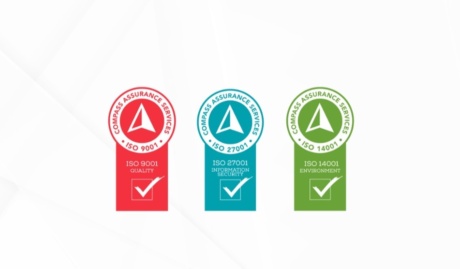Outsourcing IT support to a Managed Service Provider (MSP) can help your business stay up-to-date with the latest technology and remain competitive in today’s challenging business environment. What’s more, it can do all this while cutting your in-house IT support costs and freeing up your technical staff for mission critical tasks.
Once you commit to outsourcing IT support you will need to plan ahead to make the transition as smooth as possible. While your chosen MSP will bring their own expertise to this transition – this is what you hire them for, after all – you can still help them help you.
Here are five suggestions on how to successfully outsource your business IT support.
1. Work closely with your Managed Service Provider
Every business structure is unique – from your sales processes and supplier networks to your staff organisation and customer relations – and your IT support needs will reflect this. So, when you engage an MSP to outsource IT support, you should make sure that they know exactly how your business works and what your IT needs are. In order to ensure the best service possible, you will need to work closely with them and clearly communicate your goals.
This will mean sharing your business strategy, your plans for future growth, and any current IT weaknesses and competitive threats. Your MSP’s role is to provide you with the best IT support tailored to your business needs, as well as to proactively advise you on possible tech innovations that can help your business achieve its goals. They can only do this if you treat them as an integral partner in your business plans.
2. Focus on Value, Not on Cost
When looking for a Managed Service Provider to partner with, you should look for the most cost-effective service provider, but not necessarily the cheapest. This means an MSP that can provide you with the best service at the best possible price, and not simply the lowest-priced option.
You don’t need an MSP that provides the bare minimum of outsourced IT support, but rather one that proactively brings ongoing value to your business, and actively supports customer satisfaction and revenue growth. Keep this at the forefront of your mind when you select an MSP partner.
3. Engage senior stakeholders
You should treat the transition from in-house to outsourced IT support as a mission-critical task. A poor implementation process could seriously disrupt your business operations, not to mention inconvenience your own clients.
With this in mind, it is important that you do not delegate the task of overseeing the transition to a junior office manager or receptionist, who will then have to act as a go-between to get the job done. This adds unnecessary links to the chain, and fosters miscommunication and error.
Instead, you need your Managed Service Provider to work directly with the key stakeholders within your business. These are the senior staff who fully understand your business strategy and IT needs, and are familiar with the day-to-day operation of your business. They will bring their own expertise and authority to the outsourcing transition, and will also help bring your entire staff on board. They’re busy people of course, but if you prioritise the transition, then they will ensure it runs as smoothly and as efficiently as possible.
4. Trust the experts
As with any transition in business, one of the biggest challenges with outsourcing IT support can be in helping your staff manage the organisational change. This can be especially challenging where formerly in-house expertise is being outsourced.
You will probably have at least one member of staff who is involved in managing your IT services, and they should be one of your key stakeholders engaged in managing the outsourcing transition. One of the biggest difficulties in managing that transition can come about when your staff take a defensive position and start second-guessing and overruling the MSP team. This can be highly disruptive, leading to poor outcomes, and wasted time and resources.
As you’re paying for the professional services of an MSP, you should give them the trust to make the changes they deem necessary, obviously with input and final authority from your key stakeholders. This will provide the most cost effective and efficient IT support possible.
You should make clear to your staff that they need to listen to and trust the experts. This can be a difficult balancing act, as you will need to do this while still empowering your team. Change management is a delicate skill, but one certainly worth mastering.
5. Communication is key when outsourcing IT support
Clear, productive, two-way communication is key to any successful business relationship, especially so when outsourcing IT support. A professional MSP will implement the appropriate channels to make sure any client and/or staff feedback reaches the right people in a transparent and timely manner. Reciprocal communication is essential here and you will need to keep all channels open and productive.
- If there’s a problem, make sure your MSP knows about it promptly and is given the opportunity to address it.
- If everything is going great—tell them!
- If you’re not receiving enough reports, or the right information, discuss a reporting schedule.
- Ask your MSP how the relationship is going from their side, and what you can do to improve things.
To start off on the right foot, you can agree a policy with your Managed Service Provider that sets out your communication expectations during the outsourcing transition, as well as outlining what information needs to be communicated in both directions. Your MSP may be offsite, but they still need to be integrated with your organisation.
In today’s competitive world, a professionally-managed IT support service is much more than just an outsourced call centre. The main takeaway is to think of your MSP as an integral part of your own business structure. The key to successful integration is a productive and proactive attitude towards collaboration. With both your in-house team and your outsourcing partners working as a unified whole, and integrating their day-to-day working relations, you will be giving your business the best chance of success. Work as a team with your MSP and your business will see the benefits for years to come.



























